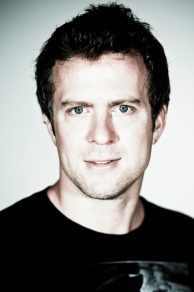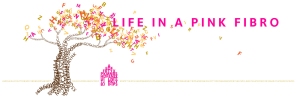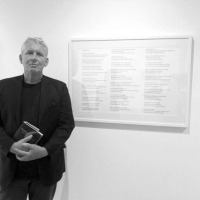Meet the locals: author Jon Bauer
I remember first encountering Jon Bauer in a session, with Fiona McGregor, at the Melbourne Writers’ Festival on writing about mothers. As you know, this is a topic that continues to engage me (on many levels) and I was intrigued because it was unusual to have a male panellist (a refreshing change, actually), and he spoke eloquently about writing female characters.
You’re originally from the UK and have recently moved to Chewton. What attracted you to the area?
Do you find living here has helped your writing?
Nope. Yes. Sort of. I’m busier here, where I thought I’d be ensconced in privacy. But knowing I can retreat whenever I want gives me a lot of comfort. I’m writing a lot right now though because I’m coming to the end of my second novel and can’t keep my hands off it.
Rocks is based on a picture I saw on a mantelpiece years ago. The image was of a young foster child with an intellectual disability. She had died, and the family who took her in really missed her.
I kept that image in my mind for years and it bubbled up again one morning while I was lying in bed looking up at clouds. In terms of the shape of my own family, I suppose Rocks has an emotional authenticity, in that I was completely befuddled by the family I found myself in, and very aware that I was bottom of their list of priorities. Do you hear violins? But otherwise, it is that fictional weave of authenticity and invention.
There are many confronting moments in the book where the reader wants to look away, step back. How did it feel going to those dark places, entering into moments of violence, brutality, cruelty, misogyny (and pain)?
At times my hands were shaking as I typed. But I felt purged afterwards. I think, early on, I wanted to punish the reader. The book softened a great deal though as I redrafted it. People are so multi-faceted, and all too often characters are polarised in films and in literature. It’s important to me to write the essence into my characters that we are all capable of almost everything. How else would murder, war, rape and brutality transcend time, geography, and culture?
As for misogyny, that was something I watched extremely closely in the book. It is important for me to go to the places in society that are unacceptable. I am writing about child abuse now, among other themes. What mattered to me with Rocks, is that it was not a misogynistic novel. Which I steadfastly believe it is not. Chauvinist characters, evil characters, racist characters, they’re all okay in my book, and can sometimes do more to highlight injustice and bigotry than writing an idealised character. But there are writers who write chauvinistic books, and racist books, and don’t even realise they’re doing it.
You mentioned that when you were writing the novel, you did an acting course where you were encouraged to improvise. How did finding your voice and experimenting with it here affect the way you were developing characters?
That is a big part of why the protagonist is less likeable than he might be. That acting course (Meisner) was a permissive space where I could explore my darker side. There was a moment in the writing where the protagonist did something small, like drop a piece of litter. But feeling anxious of keeping the reader sweet, I sent him back to pick it up. Then I thought, bugger it, drop the litter. It sounds small, and the moment isn’t even in the book anymore, but it was a turning point.
I wrote Rocks to walk a tricky line between compelling and repelling the reader. It’s a heady mix, kind of like doing the splits. I won’t have got the balance right for all readers.
‘Rocks in the Belly’ mixes the voices of a young boy and his adult self beautifully. How did you conjure up these two versions? Who emerged first?
Rocks is based on a short story I wrote, so the adult came first, but at times in the story, you can hear his voice lapse into younger language as he recounts the past. When I was coming to write the novel, I knew I had to try the younger voice. I wasn’t confident I could do it, but once I started it poured out. Kids are easy to write, I think. Just bring out your most narcissistic and associative side.
The book is essentially about vulnerability masked as something else — all the characters (and all of us) share these traits to some degree. Do you find as a writer you are stripping off the mask in some way?
Fiction is a safe place, so there’s no unmasking. But I am shining a light on the fact we’re multi-faceted, as I said. And that ultimately, most violence and anger comes from pain and woundedness. Also that childhood is brutal, no matter how happy you think yours was.
People don’t like you to talk negatively about the halcyon world of childhood, but it’s important to normalise the ambiguity and complexity of all spaces: religion, parenting, family, marriage, love, childhood, sex … We like to simplify things, and usually for the better. But they aren’t simple. Ambiguity is a larger place, and allows a lot more freedom in life, and in story.
You’re currently immersed in your new novel. What’s the process? Do you research extensively? Or do you hit the ground running once you’ve found a character?
Both. This novel took a long time to find the story. I knew I wanted to write about a man. Then he became a man going blind. That led to a period of research, which was long and interesting, and confronting, but ultimately inspiring. Then just writing the words. Lots of them. It ended up being 160,000. I’m now stripping it back and shaping and grooming it. Down to 116,000, but I want it lower, if it’ll let me.
Are you a writer who likes to stick to a routine, who finds comfort there, or do you embrace spontaneity?
Routine shmootine.
We’ve talked in the past about the importance of play. Is this something you incorporate into your writing process?
Creativity IS play. Certainly initially. If you aren’t largely enjoying it, you’re doing something wrong.
You seem to be always drawn to the psychology of young boys? What is your interest in psychology and this particular age group?
The more I write the more I see themes. The key ones, I think, are that I write children (of both genders) as brutalised heroes. I tend to write the elderly as vulnerable, and the adults as flawed and negligent. That seems to be the over-simplified gist. And children make great narrators, and compelling protagonists. Who can’t cheer on a child character?!
In a ‘Newswrite’ article (‘Writer on Writer’) you wrote of how you were inspired by Ray Bradbury. What other writers do you go to for inspiration?
Susan Sontag described writing best when she said that, ‘It feels like leading and following at the same time.’ I try to live life like that too. Otherwise, I’m a buffet reader — dipping in and out of many writers. Mostly, I read non-fiction: psychology and ontology. I think I’ll be a therapist one day, and am hellbent on gathering more and more information on that unassailable thing — life. Fiction is a good place to do that, both writing it and reading, but I devour books on how to live betterer.
HAVE YOU READ ROCKS IN THE BELLY? OR ANY OTHER FICTION THAT IS BOTH REPELLING AND COMPELLING? WOULD LOVE TO HEAR YOUR THOUGHTS.
If you enjoyed this, you might also like to meet another local writer: Adam Ford. As Castlemaine has such a vibrant artistic community I’ll be doing more of these interviews in the coming year.







